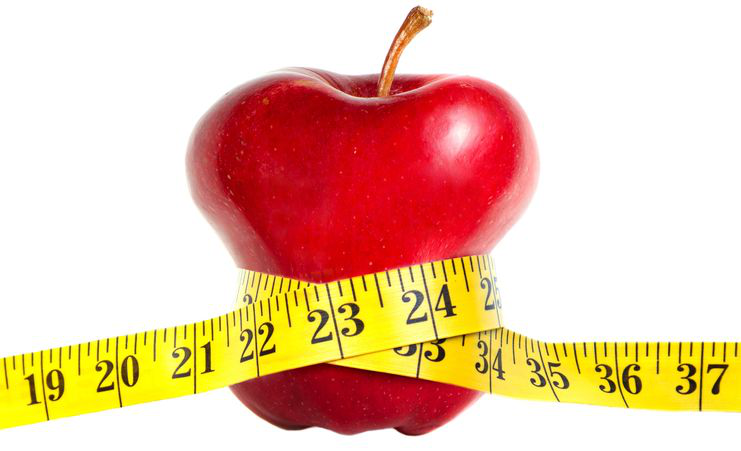menu



By definition a calorie is the energy it takes to raise the temperature of 1 gram of water 1 degree Celsius. The important word to take away from this definition is ENERGY. Calories are ENERGY that fuel our bodies; much like gasoline fuels our cars. Without sufficient calories our heart would not beat, our lungs would not function, and our brain would not work.
In general, an adult body needs at least 1000 to 1400 calories to have enough energy to fuel key organs like the brain, heart, and lungs. This minimum number of calories is called your resting metabolic rate (RMR) and it varies greatly depending on age, sex, weight, and muscle mass. In order to have enough energy to live your day and be active you need more energy than what's required from your resting metabolic rate (RMR). This extra energy typically amounts to about 400 to 600 additional calories per day which is the energy you need to move versus just lying still all day. Please note that these numbers are general averages. Children's calories needs vary based on age.
Calories and Weight Gain
If you exceed the number of calories your body requires each day you will eventually gain weight. It takes an excess of 3500 calories to gain 1 lb. of fat. For example, if your body needs 2000 calories a day to maintain its current weight and every day you consume 2500 (one 20 oz Mocha Swirl Latte could add 500 calories) in one week you would gain 1 lb. One day of overindulging does not cause instant weight gain.
Calories and Weight Loss
To lose weight you need to use/burn more calories then you consume. Example: If you eat 2000 calories a day, and are maintaining your weight, you would need to burn 250 calories (30 minutes high impact aerobics for a 150 lb. person) per day to lose a 1/2 lb in one week. If, in addition, you decreased your caloric intake by 250 calories a day (a 20oz soda), a 500 calorie a day total deficit, you could then lose 1 lb per week.
It's important to remember that although drastically reducing your calories in a short period of time may initially result in dramatic weight loss, the body can rarely continue along this restrictive path, especially if the person is consuming below their resting metabolic rate. Eating later to make up for those missing calories usually results in gaining back the weight lost, plus extra. And, if you force your body to restrict calories for a prolonged amount of time, your metabolism will slow down to compensate--effectively stopping weight loss.
In general, an adult body needs at least 1000 to 1400 calories to have enough energy to fuel key organs like the brain, heart, and lungs. This minimum number of calories is called your resting metabolic rate (RMR) and it varies greatly depending on age, sex, weight, and muscle mass. In order to have enough energy to live your day and be active you need more energy than what's required from your resting metabolic rate (RMR). This extra energy typically amounts to about 400 to 600 additional calories per day which is the energy you need to move versus just lying still all day. Please note that these numbers are general averages. Children's calories needs vary based on age.
Calories and Weight Gain
If you exceed the number of calories your body requires each day you will eventually gain weight. It takes an excess of 3500 calories to gain 1 lb. of fat. For example, if your body needs 2000 calories a day to maintain its current weight and every day you consume 2500 (one 20 oz Mocha Swirl Latte could add 500 calories) in one week you would gain 1 lb. One day of overindulging does not cause instant weight gain.
Calories and Weight Loss
To lose weight you need to use/burn more calories then you consume. Example: If you eat 2000 calories a day, and are maintaining your weight, you would need to burn 250 calories (30 minutes high impact aerobics for a 150 lb. person) per day to lose a 1/2 lb in one week. If, in addition, you decreased your caloric intake by 250 calories a day (a 20oz soda), a 500 calorie a day total deficit, you could then lose 1 lb per week.
It's important to remember that although drastically reducing your calories in a short period of time may initially result in dramatic weight loss, the body can rarely continue along this restrictive path, especially if the person is consuming below their resting metabolic rate. Eating later to make up for those missing calories usually results in gaining back the weight lost, plus extra. And, if you force your body to restrict calories for a prolonged amount of time, your metabolism will slow down to compensate--effectively stopping weight loss.
About Us
Training people for over 30 years, Body Plus has the experience and credentials to deliver results to anyone willing to work hard and eat right! Don’t waste precious time. It’s time to get fit NOW!!!